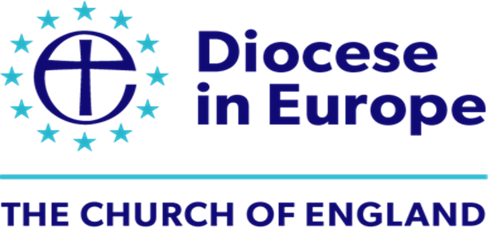Hymns for Sunday
- Hail to the Lord’s anointed…
- O worship the Lord in the beauty of holiness,
- I, the Lord of sea and sky…
Women’s Group Our next meeting will be on Thursday, 18th January 2018, so back to the third Thursday in the month which we try to keep to unless there are public holidays, several of us are away etc. Having stuck the stickers on the carol booklets before the carol service, our job this time will be to go through the box and sort out all the carol booklets from the order of service and fliers and count how many carol booklets we have left. There will still be plenty of time for tea, coffee, biscuits and a chat so look forward to seeing you there.
Alison women@stcatherines-stuttgart.de
Ladies’ Evening Group Our next LEGS will be Monday, January 29th, 7pm. We will be meeting at Weinstube Kachelofen – http://www.weinstubekachelofen.de/ for a taste of Schwabia. New faces and old ones are always welcome. Please let Anne know if you would like to join us. legs@stcatherines-stuttgart.de
Thoughts for Epiphany – Matthew 2.1-12
Dear friends,
 Now is the 12th day of Christmas, the end of our journey through Advent and Christmas, as it’s the end of the journey of the wise men.
Now is the 12th day of Christmas, the end of our journey through Advent and Christmas, as it’s the end of the journey of the wise men.
We accept that the visit of the wise men isn’t historical: it’s a story told by the early church to express how special they believe Jesus is, right from his birth. Each part of the story has a symbolic meaning. But these symbols aren’t the whole story. And one of the most important things about the story as a whole, I think, is the way it shows how the presence of God in the world, in this child, changes the world.
So this is a story about what happens if God is present among human beings. We feel the power of God, and we react. But if we rely on our own ideas about how to react, we tend to get things wrong. Because human beings by themselves are too limited even to imagine what God might want for us.
Even if we don’t fully understand it, though, the presence of God changes the context and the meaning of all our actions. In human terms, for instance, Herod’s behaviour is politically a bit risky but worth it. In the face of God it’s an indefensible crime. The same is true for us. If God is here, among us, what we do to each other we do to God and in the presence of God, and then nothing is justifiable but behaving absolutely as God asks of us.
The story of the wise men is a kind of parable of the effect of Jesus on us. Many of us feel the magnetism of God’s presence even when we’re psychologically a long way away. It pulls at the edge of our consciousness, bothering us to take notice, change direction. If we follow it, we needn’t expect it to lead us to the powers that be, to political or religious authorities. Wherever we find God, we’re likely to be surprised.
Which is why it helps that we have stories of the adult Jesus as well as the baby Jesus. The moral of the story of the wise men is that it’s not enough for God just to be present with us. To understand what God wants of the relationship, we need more help – some specific teaching and examples, to show us how to behave when God is among us. Herod and the wise men didn’t have the Sermon on the Mount, the parables, the Passion and the Resurrection. We are better off: we have not only the promise that God is with us, but also guidance about how to respond.
Still, there is something very important about meeting Jesus as a baby. When the wise men meet Jesus as a baby, and when we think about Jesus as a baby at Christmas, one thing becomes very clear. God in the form of a baby needs help. To be held and carried and looked after. And if God, if Christ is with us now, God still needs to be helped. As Mother Teresa said, God has no other hands now but ours, to do God’s work in the world. We really have been left holding the baby; this Epiphany we’re the people to whom Christ is shown, we’re the ones responsible for carrying the news to the whole of the rest of the world.
One of the things that make this story stand out in Matthew’s gospel, is that although Jesus is at its heart, its heroes are the wise men. This in spite of the fact that they don’t quite understand what’s going on and don’t quite get things right. That makes this a very encouraging story for the rest of us. We may not be perfect; we may not understand much about the mystery of God; but we do have something to give – ourselves, our talents, our hands, our worship. We are welcome in the presence of God.
We do not hear about the return journey of the wise men. It’s a pity, really, because what happens to them after they meet Jesus is surely significant. But we do know something about our own journey, and we know that our journey through Advent and Christmas is just the beginning. The stable is really the starting point. As we travel through the year, through the gospel and through the journey of our individual lives, we can reflect that there will always be a star ahead of us to show the way. We will always be being drawn closer to the presence of God.
Wolfgang +









